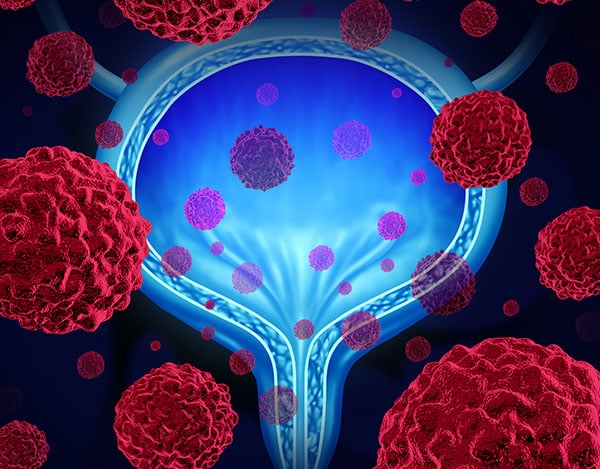The First Gene Therapy for Bladder Cancer
The FDA approved the adenovirus-based gene therapy nadofaragene firadenovec for the treatment of localized bladder cancer.
The U.S. Food and Drug Administration (FDA) has approved nadofaragene firadenovec (Adstiladrin) for the treatment of adult patients with high-risk, non-muscle invasive bladder cancer (NMIBC) that did not respond to Bacillus Calmette-Guérin (BCG) treatment.
Nadofaragene firadenovec is a recombinant adenovirus. When instilled into the bladder, it infiltrates the bladder cells and delivers a gene encoding interferon alpha 2b (IFNα2b), which is incorporated into the cells’ DNA. The bladder cells then express IFNα2b, which blocks bladder cancer growth.

Nadofaragene firadenovec is a non-replicating virus, meaning it does not contain the genetic instructions necessary to copy itself and infect additional cells.
The approval was based on results from Study CS-003, a phase III, multicenter, single-arm clinical trial that enrolled 157 patients with NMIBC, 98 of whom had BCG-unresponsive disease. Patients were treated with nadofaragene firadenovec once every three months up to 12 months or until unacceptable toxicity or a high-grade recurrence.
The complete response rate was 51 percent, and 41 percent of patients experienced a complete response for at least one year. The median duration of response was 9.7 months.
NMIBC is a type of localized bladder cancer that has not metastasized or invaded into the muscle wall of the bladder. According to federal statistics, over 81,000 individuals were estimated to be diagnosed with bladder cancer and 17,100 patients were estimated to die of the disease in the U.S. in 2022. Approximately 70 to 75 percent of bladder cancer cases are NMIBC.
The FDA rendered its decision on December 19, 2022.